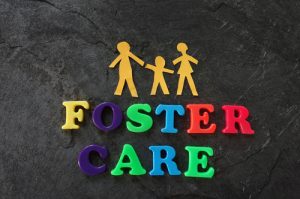
The House passed legislation on Tuesday from U.S. Reps. Jackie Walorski (R-IN) and Kristi Noem (R-SD) to help families and child welfare systems struggling in the wake of escalating drug abuse.
House Majority Leader Kevin McCarthy (R-CA) applauded House passage of the bills led by Walorski and Noem, along with additional measures that aim to strengthen families and improve the foster care system.
“The heart of our nation is found in thriving families and supportive communities,” McCarthy said. “The goal of the foster care system should be to have children reunite with their biological parents, and when possible, not to separate them at all. These bills take smart steps toward that goal by making it easier to keep children with their parents or have a relative become a foster parent.”
Walorski’s Modernizing the Interstate Placement of Children in Foster Care Act, H.R. 2742, would reduce delays and added costs of paperwork by having states implement an electronic system for interstate foster care placement. And Noem’s Supporting Families in Substance Abuse Treatment Act, H.R. 2857, would give state and tribal governments authority to grant foster care support to children placed with their parents in family-based, residential treatment facilities.
Walorski’s bill would allocate $5 million to help states transition to the cloud-based, electronic National Electronic Interstate Compact Enterprise (NEICE) system for foster care records by 2027.
“The faster we can place vulnerable children in stable homes through foster care and adoption, the better chance they will have to thrive and succeed,” Walorski said. “Printing and mailing back and forth hundreds of pages of paperwork only forces kids to wait longer to be with loving families. By eliminating this unnecessary paperwork and building on the success Indiana and other states have had with a modern, electronic system, this bipartisan bill will reduce excessive delays and help children lead better lives.”
Walorski noted on the House floor that there are 10,000 more children in the foster care system in Indiana than there were 18 months ago, largely due to the opioid epidemic that has put the child welfare system “under unprecedented strain.”
“And yet, in spite of this great need for foster care and adoption, if a child needs to be placed in another state, caseworkers from both states must literally print and fill out hundreds of pages of paperwork and mail them back and forth,” Walorski said. “This cumbersome process takes months, and just one missing page can set it back even further. These are precious months that an at-risk child is stuck in limbo, waiting for the certainty of a more permanent home. It’s time to bring this process into the 21st century.”
Noem, meanwhile, noted that new data shows that accidental overdose deaths in South Dakota increased 59 percent from 2013 to 2016, and that drug arrests and violent crime rates nearly doubled in the state from 2005 to 2015.
“Drug treatment programs that keep families together and children out of foster care have proven to produce better outcomes for both the parent and child,” Noem said. “Even so, government-induced barriers exist that make a family-focused approach difficult. I’m hopeful the Supporting Families in Substance Abuse Treatment Act will offer another evidence-based tool to those on the drug abuse epidemic’s front line, helping them strengthen families and change lives.”
Noem’s bill would also enhance the Regional Partnership Grant program, which provides support to state and regional entities to help prevent substance abuse-related child abuse and neglect.



